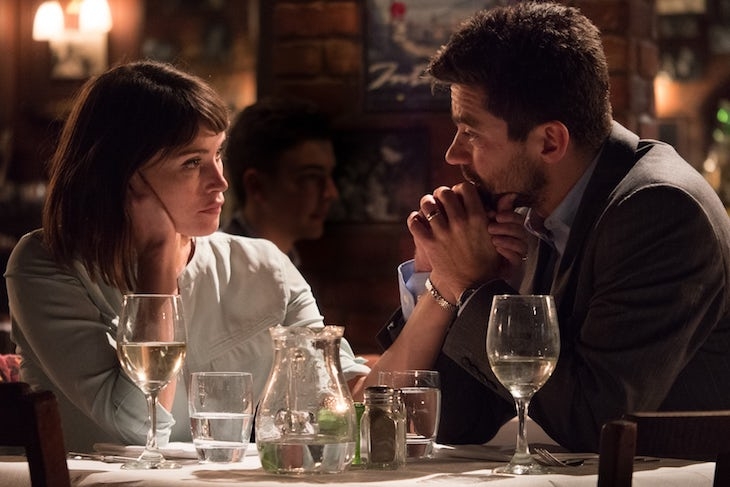Dominic Savage had an early start. In Barry Lyndon (1975), Stanley Kubrick’s sprawling take on Thackeray, he played a prepubescent toff called Bullingdon blessed with a blond pudding-basin crop. By the time Savage started making his own films in the early Noughties, the hair had vanished, and so had any of Kubrick’s civilising varnish.
For television Savage made a loose trilogy of dramas which plummeted circle by circle into a pit of social deprivation. His subjects were teenage parenthood (Nice Girl), underage drug use and prostitution (When I Was 12), and suicide in a young offenders’ nick (Out of Control). These cheerless vignettes felt all the more raw because his untried young performers ad-libbed without a script. Later Savage trained his gaze on adult travails — the work/life/romance balance — and he employed known actors. But he stays loyal to the credo that dialogue made up on the spot strips away artifice and accesses emotional truth.
The Escape represents Savage’s escape from small screen to big screen. In another fresh move, he is working with a genuine film star in the form of Gemma Arterton. Arterton plays Tara, a commuter-belt housewife whose existential disquiet perhaps has something to do with the brute pleasurings her grunting husband Mark (Dominic Cooper) insists upon before breakfast. Then he drives off to work, leaving her to the hard yards with the squawking kids. It’s a dismal snapshot of autopilot motherhood, all supermarket trolleys and paralysing isolation. A weekend barbecue is a hollow charade. The garden in repose looks like the Alamo, a strafed rectangle of downed kiddies’ vehicles.
One day Tara nips up to town on the train and her eye is caught on the South Bank by a secondhand book about the ‘Lady and the Unicorn’ tapestries in Paris. She is inspired to research some sort of art course, to Mark’s fogged incomprehension. Her mum (a shrewish cameo from Frances Barber) says she’s left it too late for self-improvement. ‘You’ve got it made,’ she sneers. This plot outlet is a mite fanciful and even trite: are we to believe that Tara’s happiness, like a unicorn, is a mythical chimera?
But something has to give. In one shocking blurt of articulacy, Tara confesses to the ultimate taboo: that she simply doesn’t care about her children. Her mute sorrow is bleakly all-engulfing. Married to a hobbledehoy in sharp tailoring who cannot compute her whimpered pleas for release, she could desperately use a talking cure. But her plight is rooted in her lack of language, beyond the reach of metropolitan psychobabble. (Halfway in, the audience may need stress counselling too.)
On the Chekhovian principle that a script won’t mention medieval tapestries in act one without eventually putting them on screen in act three, Tara’s yearning for an escape hatch lures her to the railway cutting at Ebbsfleet. Then, tumultuously, she flits to Paris. It may be the escapist cliché deluxe, but visually it’s a welcome change of palette after the hatchet face of Kentish suburbia. The soundtrack duly sparks into life, and Tara starts to breathe and smile. It’s as if she’s quantum-leapt from Mike Leigh to the nouvelle vague.
Will France turn out to be as perfidious as Albion? You need to see the film to find out. Not that its opaque ending necessarily reveals all. Inevitably there is un homme (Jalil Lespert), a stubbly creep who, without so much as a by your leave, wanders into shot and points a gawping camera at Tara. ‘Because you’re beautiful and the light is great,’ he explains Gallicly. In truth this is nothing that Savage and his DoP Laurie Rose aren’t also guilty of. In the opening scene (which is echoed in the last), Tara searches for inner truths in a gilt-edged mirror. Subjected to minute and relentless inspection, Arterton’s face, with its spray of innocent freckles, its archipelago of tiny pimples and tears spilling like clear mountain springs, becomes a living canvas. In a fine and affecting performance, she weathers the intrusion with valiant openness.
The Escape is finally not quite as overwhelming as it might be. There’s a pat aria about matrimony from a Parisian saviour (Marthe Keller). But this is a confrontational portrait of deadening unhappiness. It may well save some marriages. Or end others.






Comments